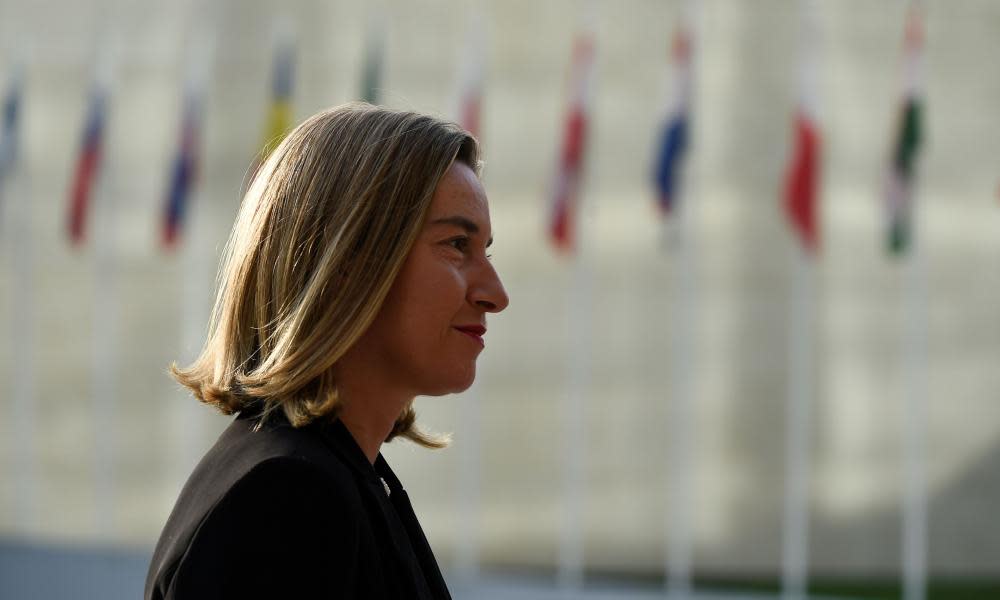EU urges US Congress to preserve Iran nuclear deal Trump threatened

The European Union has urged US politicians to preserve the Iran nuclear deal, warning that Donald Trump’s threat to end it could jeopardise international security and damage diplomatic efforts to defuse tension in North Korea.
The EU’s foreign policy chief, Federica Mogherini, said the president’s threat risks making it “more difficult to open any form of dialogue or mediation with [Pyongyang] in the case of a serious threat”.
It came as the EU’s 28 foreign ministers unanimously called for full and effective implementation of the Iran deal, known formally as the Joint Comprehensive Plan of Action (JCPOA). They said in a statement: “At a time of acute nuclear threat the EU is determined to preserve the JCPOA as a key pillar of the international non-proliferation architecture.”
“Clearly the ministers are concerned that messages on JCPOA might affect negatively opening negotiations or even the space [for] opening negotiations with DPRK,” Mogerhini said, using the abbreviation for the country’s official name, the Democratic People’s Republic of Korea. “One of the key elements of multilateralism is the predictability of maintaining agreements.”
Mogherini will travel to Washington in November, where she will reiterate the message. The Iran deal was brokered by her predecessor, Catherine Ashton, and signed by the UK, France, Germany, the US, Russia and China.
Trump on Monday renewed his threat to fully withdraw from the deal, telling reporters: “I’m tired of being taken advantage of as a nation. This nation has been taken advantage of for many, many years, for many decades, frankly, and I’m tired of watching it. But the Iran deal was something that I felt had to be done.”
Trump wants the US Congress to toughen the conditions on Iran, but any amendments would require 60 votes to pass.
Mogherini, who said she spoke to the US secretary of state, Rex Tillerson, moments before Trump’s speech last Friday, called on the US to examine how the deal affected its own security. “I am convinced that the United States will take into consideration the security interests not only of their own country, but also of their allies, partners and friends,” she said.
The UK, France and Germany have restated their commitment to the deal. Boris Johnson, the UK foreign secretary, said: “We are obviously working as Europeans to keep the Iran nuclear going. The UK has long thought this is good for our collective security, it is good for the world, it is good for Europe and it is good to keep that going.”
France’s foreign minister, Jean-Yves Le Drian, said the EU needed to put real pressure on Congress. “We hope that Congress will not call this agreement into question because ... non-proliferation [of nuclear weapons] is a major element of global security,” he said.
Bert Koenders, the foreign minister of the Netherlands, said it would be a grave mistake to abandon the agreement, suggesting there could be a destabilising effect on North Korea. “The consequences would not only be the consequences for the United States, but also for Europe and the international community,” he said. “Look at the situation in North Korea.”
At their meeting in Luxembourg, the EU foreign ministers extended sanctions on North Korea, going beyond UN sanctions. The EU banned all crude oil sales to North Korea and cut remittances that can be sent into the country from the EU to €5,000, down from €15,000, as the money is believed to support the regime’s nuclear programmes. The EU also announced it would not renew work permits for North Koreans, unless people had refugee status.

 Yahoo News
Yahoo News 
